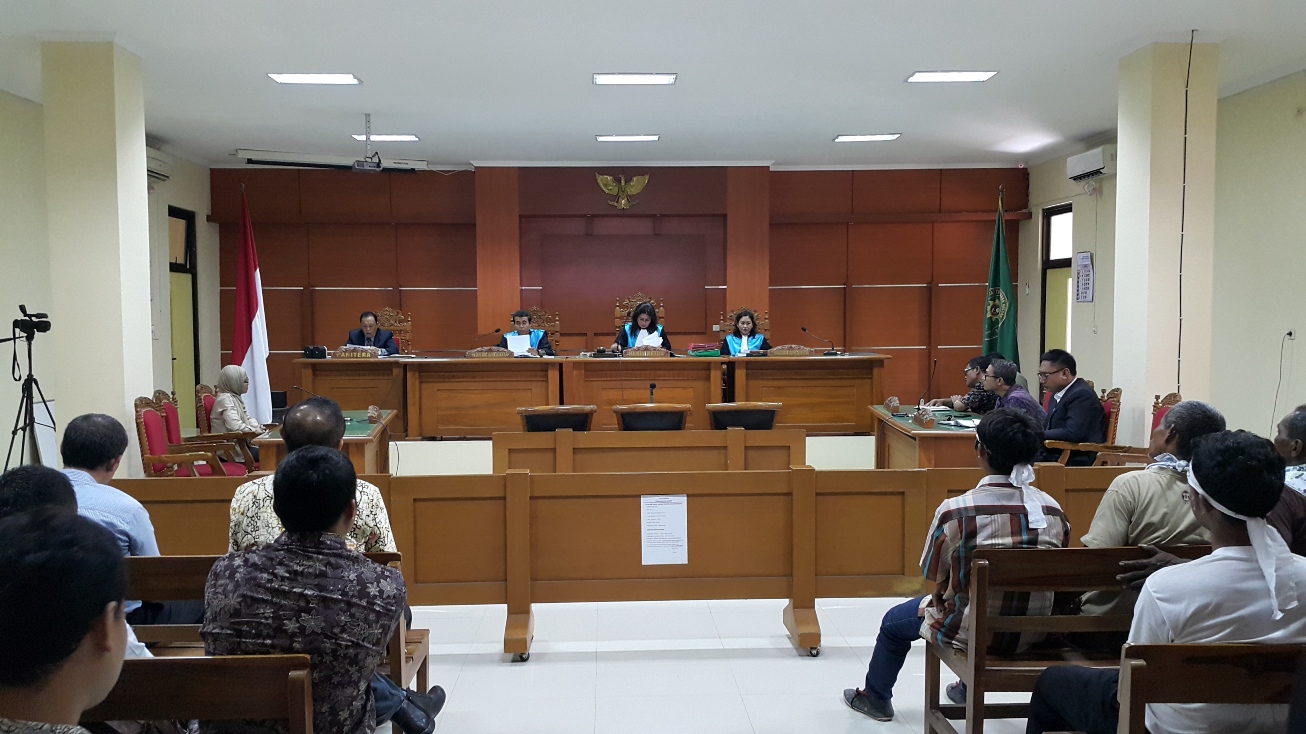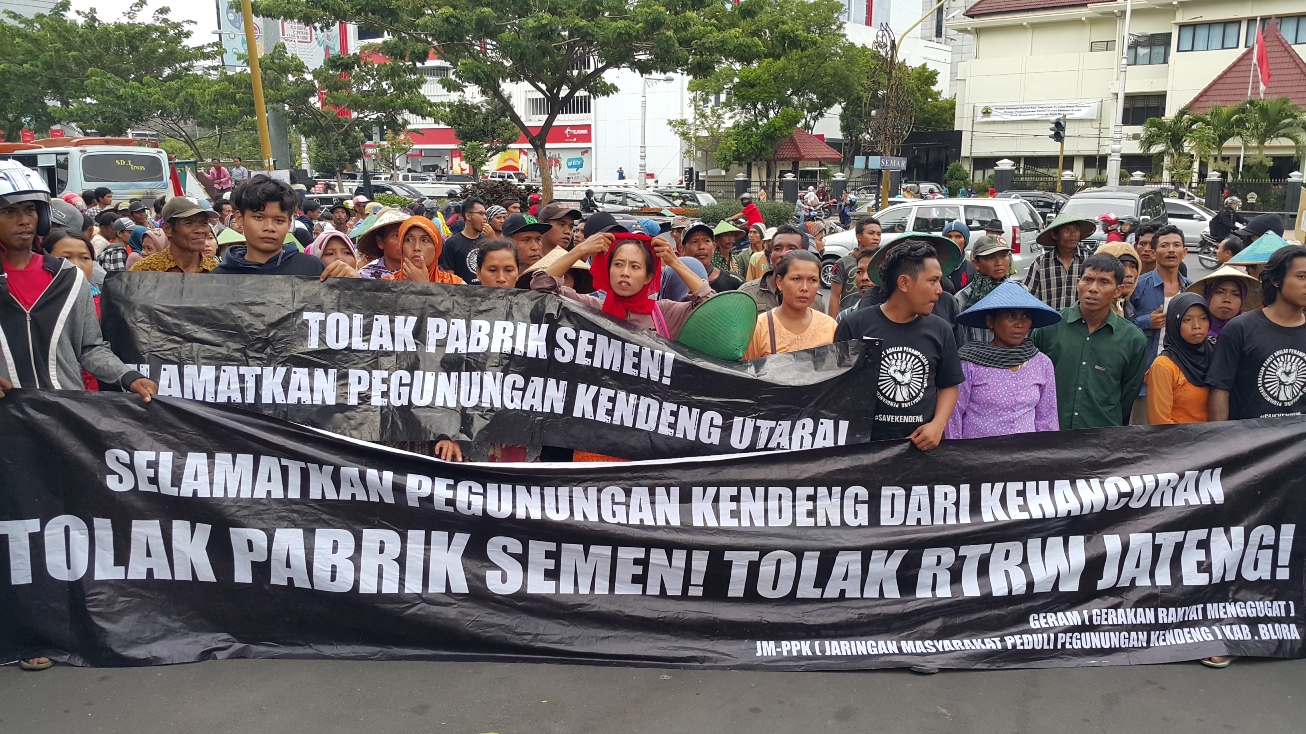
The head of the panel of judges at the State Administrative Court in Semarang, Central Java, reads out the verdict in the Rembang case last week. Photo: Tommy Apriando
A grassroots movement to halt construction of a cement factory and mine in Indonesia’s Rembang regency suffered a major setback last week when a Central Java court rejected a lawsuit against a permit held by state-owned Semen Indonesia, the country’s largest cement producer.
Judges cited local people’s strident opposition to the project as proof that the environmental and social impact assessment, or Amdal, in question had been sufficiently publicized, and through the appropriate channels.
They also deemed the case invalid for its being filed more than 90 days after the permit’s issuance.
The plaintiffs, meanwhile, maintained they knew nothing of the company’s impact assessment until heavy machinery appeared at the factory and mining site in June 2014, after which the suit had been submitted.
“We have agreed to appeal the verdict,” plaintiff Joko Priatno said.
The Indonesian Forum for the Environment (Walhi), an NGO who joined local people in filing the suit, said the ruling ignored its principal concern – the threat mining posed to the karst-dotted Kendeng highlands and water sources therein.
Walhi attorney Muhnur Satyahprabu said the verdict reinforced doubts about the competency of judges certified to try environmental cases, adding that it violated the precautionary principle as well as the need to consult the public during impact assessments.
The Rembang case has become one of Indonesia’s most high-profile land disputes on the back of a sustained social media and mass action campaign.
The row over the impact assessment highlights a general lack of oversight surrounding issuance of the permit, meant to give local people a voice in development that affects them but whose processes are often skirted in order to push through controversial projects.
Earlier this month, an official from Indonesia’s National Commission on Human Rights (Komnas HAM) pointed to Rembang as an example of how impact assessments are frequently manipulated by companies required to undertake them.
Last week, two professors from Gajah Madah University in Yogyakarta were found by their peers to have given misleading testimony as expert witnesses on behalf of Semen Indonesia, with yet-to-be-determined santions forthcoming.
Rembang residents had demonstrated outside the university in protest of the two men’s testimony, which they felt misrepresented the landscape’s environmental significance.
In a speech after the trial, suspended Corruption Eradication Commission (KPK) deputy chief Bambang Widjajanto also raised concerns about the professors’ claims in court.
Graft in the handling of natural resources has risen up the KPK’s list of priorities of late, with the commission entering into a pact, known as the NKB, with 29 other ministries to weed it out.
In response to the verdict, a demonstration broke out in front of the court building in Semarang, Central Java.

A protest against state-owned cement producer Semen Indonesia outside the court building in Semarang, Central Java, last week ahead of the issuing of the verdict, which favored the company. Photo: Tommy Apriando
The protesters soon relocated to the Central Java governor’s office, where Rembang residents – joined by hundreds of students from the Islamic University of Indonesia Semarang and Diponegoro University, as well as residents of Blora and Pati regencies — demanded an audience with Governor Ganjar Pranowo. With Ganjar out of the office aide Siswo Laksono listened to the grievances.
Produced in English by Philip Jacobson.
Citations:
- Tommy Apriando. “Hakim Menolak Gugatan Warga Rembang Terkait Pabrik Semen. Apa Alasannya?” Mongabay-Indonesia. 17 April 2015.